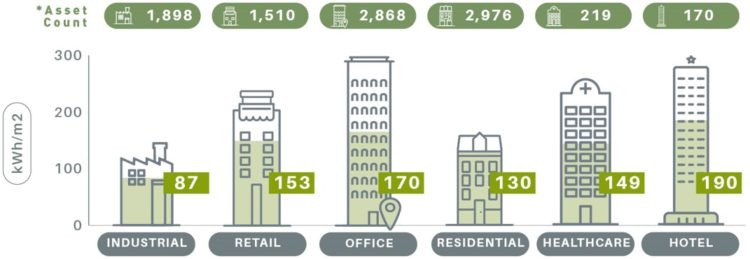The environmental impact of hotels on the local and global environment is drastic. In Europe, the built environment is responsible for 40% of energy consumption and 36% of green-house (CO2) emissions. Of all commercial real estate asset classes, hotels are the most energy- and water-intensive.


Higher operational expenditures following a climate event, such as drought, put great strain on a hotel's overall profitability. Hotels also suffer from a resulting lack of supporting infrastructure, such as access to clean and fresh water, food, and supplies.
Hotel management companies and individual hotel owners adopt sustainable solutions for the day-to-day operations of their hotels. Their sustainable practices include cutting water usage, lowering waste, saving energy, and/or using renewable energy sources.
Hotel policies are generally aimed to either minimize the impact on the environment or contribute to nature preservation and regeneration. Sustainability decisions are made to combat climate change that lead to a significant cost saving over the longer term.
Sustainable practices in hotel operations are employed to maintain the qualities that are valued in the physical environment within the means of natural systems (environment) and without harming other people (society and culture). Hotel design and development are being focused on environmental protection and sustainable hotel operations, to reduce the associated climate risk, provide a satisfying guest experience, improve the work environment for staff, and increase profitability.
Their heightened exposure to climate change and increased pressure from all stakeholders have made green building initiatives of special importance to the hospitality industry. Sustainability reporting – the disclosure of the environmental and other effects of organizations’ economic actions – contributes towards assessing the hospitality industry’s global impacts.

